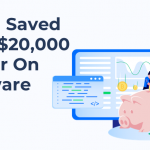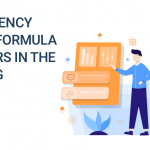
Whether you’re running a web design agency, a development outsourcing company or a digital marketing business, a profitable digital agency is the only kind worth having. So often digital agencies experience an influx of new projects followed by a lull in sales. These ups and downs make it all the more important to build up a thick cushion of profit to fall back on during lean times.
The trouble is a lot of agencies have thin profit margins and even when sales are rolling in they still have trouble being profitable enough to build up the funds to grow, market, or save.
After almost 20 years running my own digital agency, I was able to pin down exactly what makes a project profitable so my business can thrive (and I get a weekend off every now and then.)
Here Are My Top 11 Digital Agency Tips For Running a Profitable Digital Agency
These tips will increase your revenue and decrease your cost on your digital projects and as a business overall. And maybe they’ll give you some extra time off so you can travel, play with the dog, take a nap, or whatever you wish you could be doing right now.
-
Stop taking on small website projects
 Doing a $5,000 WordPress site takes only slightly less time and resources than doing a $15,000 website. Which begs the question, if you have the resources and ability to take on big projects, why are you still taking on small website builds? Increase your minimum project price tag and you’ll up your profitability fast.
Doing a $5,000 WordPress site takes only slightly less time and resources than doing a $15,000 website. Which begs the question, if you have the resources and ability to take on big projects, why are you still taking on small website builds? Increase your minimum project price tag and you’ll up your profitability fast.
Worried you need those small projects to stay afloat? Read on, the next tips will help you close those big sales so you don’t sink when you turn down the little projects. -
Use the right tools
You wouldn’t expect a microwaved steak to be impressive, it’s just not up to the job. When taking projects on at your digital agency, know that the quality of the project is directly related to the tools you use. That doesn’t mean free systems are unusable, you just need to find the right ones for the job. Here are the tried and true systems we recommend for design, development, marketing agencies and beyond.
-
BrainLeaf: Project Scoping Tool
You’d be hard-pressed to find a more comprehensive and professional project scoping tool. You can create and manage templates and contracts, or use the pre-built ones. It’s free for 14 days, so you’ve got nothing to lose!
-
JIRA: Management Tool For Large Development Projects
If you’re building an app, a saas or other software system or a large website, JIRA is the only way to go. The price is well worth the power this massive system offers.
-
Asana: Management Tool For Design, Marketing, or Small Development Projects
If your project is not heavy on development, Asana is the way to go. For design, marketing and small sites like Squarespace or WordPress, it’s got everything you need. Even better, it’s free!
-
-
Write a detailed scope of work document
 The lack of project planning that goes into writing a proper scope of work is the number one cause of lost time and money in most digital agencies. With a less than adequate SOW you can also look forward to confused designers, developers, and project managers, frustrated clients and a general feeling of the website spiraling out of control.
The lack of project planning that goes into writing a proper scope of work is the number one cause of lost time and money in most digital agencies. With a less than adequate SOW you can also look forward to confused designers, developers, and project managers, frustrated clients and a general feeling of the website spiraling out of control. -
Use a website planning document and template
Running a profitable digital agency takes project planning and finding shortcuts that benefit your business. If you start with a blank slate for each project you’re wasting a ton of time and likely glossing over the nitty-gritty details. Create a planning document for your website projects so you can identify what steps are easily repeatable. Create a project plan template for your most common types of website projects that you can use again and again with some simple modifications.
-
Hire a designer for mockups
 One of the tricks to making sure a project goes smoothly is taking the time to design great mockups before development starts. It costs more money to hire a designer to do this work, but if you can find a good web designer and they are fairly fast, it is worth every penny to make sure that every page is done exactly right. Most projects cost between $300 and $1,000 to design all the pages, get approval from the client, and hand these over to the developer.
One of the tricks to making sure a project goes smoothly is taking the time to design great mockups before development starts. It costs more money to hire a designer to do this work, but if you can find a good web designer and they are fairly fast, it is worth every penny to make sure that every page is done exactly right. Most projects cost between $300 and $1,000 to design all the pages, get approval from the client, and hand these over to the developer. Every time I skip this step, I regret it. It is easy on a small project to feel like it’s no big deal to save some time and money by skipping this step, but ironically it almost always costs and takes longer in the end if you take this route.
-
QA your work against the mockups and scope document
After you have those designs approved and sent over to the client, make sure you have a QA person to double check every page against the final work and hammer your developer until they are exactly right. Obviously, there is some room for cross-browser and mobile differences, but there is no room for not matching designs. As long as they know that this is a part of your agreement with them, they are obliged to do this.
-
Always get a deliverables contract signed
 Most digital agencies require a contract, but a contract only covers you as far as the information in it. Always clearly define what you are and are not doing, your deliverables, and payment milestones in your contract.
Most digital agencies require a contract, but a contract only covers you as far as the information in it. Always clearly define what you are and are not doing, your deliverables, and payment milestones in your contract. -
Check in every day
Don’t ever assume no news is good news and don’t wait for your team to come to you with a problem. Keep up with everything that’s going on by checking in with your designer or developer every day. Just a 10-minute call is usually fine, but be in front of them every single day. A quick Skype call is often enough to catch up with where the project is in development, design, and client communication. Keeping a recurring daily meeting time ensures everyone has the time set aside for this.
-
Log everything
Make sure that your developer, designer, QA person, project manager and anyone else on a project has a spot in your project management tool where they input what they did every day and hold them to it. You can set up an automatic reminder for free in Slack using Polly.
If they don’t add stuff to your project management system and they don’t have a good reason, let them know when you talk to them again that they must do this. Put this requirement into their employment contract so there is no question about the necessity of it. If you remind them and they don’t do it, let them know they have a certain number of strikes left of not doing it and you will have to let them go.
-
Make connections with other agency owners
 Many agency owners feel like they have to figure everything out on their owneven when they are just starting a digital agency, but it couldn’t be further from the truth. The thing that helped me the most in growing my business was talking to other business owners. Turns out a lot of people had been through the same struggles and were more than happy to offer valuable advice. There are plenty of meetups and online forums to help you connect to similar companies. This can be a great way to build referral relationships as well.
Many agency owners feel like they have to figure everything out on their owneven when they are just starting a digital agency, but it couldn’t be further from the truth. The thing that helped me the most in growing my business was talking to other business owners. Turns out a lot of people had been through the same struggles and were more than happy to offer valuable advice. There are plenty of meetups and online forums to help you connect to similar companies. This can be a great way to build referral relationships as well. -
Don’t be afraid to fire people
If you have an in-house or outsource (especially outsource) person who is not making meetings, not responding to calls, not inputting their info, or generally just not doing their job, fire them. For real. When your outsource team knows that you are fair and good, and pay reasonable prices, but hold them accountable for their incomes, you will have a strong and effective team.
Even in the middle of a project, replacing someone who’s not doing their job is often better than keeping someone on to avoid rocking the boat. Let the client know that that you are going to be behind up front, and get a new person. Of course, this is dependent on the size of the project and how far along you are. It is totally worth it on a smaller site. Make sure to start looking for replacements as soon as you know there is a problem.
Solidifying Your Process Leads to a Profitable Digital Agency
In the end, the number one biggest game changer is organizing your processes for smooth projects using robust tools built for the job. The key is to take a step back and see where the holes are and then fill them in with clear SOPs and detailed project templates.
Prospective clients can see the difference between a professional business that has a plan ready to go and an agency that is figuring it out as they go. Organization and diligence will help you close the sales you really want. To run a profitable digital agency you need to take the time, set up a process for project planning and management and adapt your methods when you need to.





